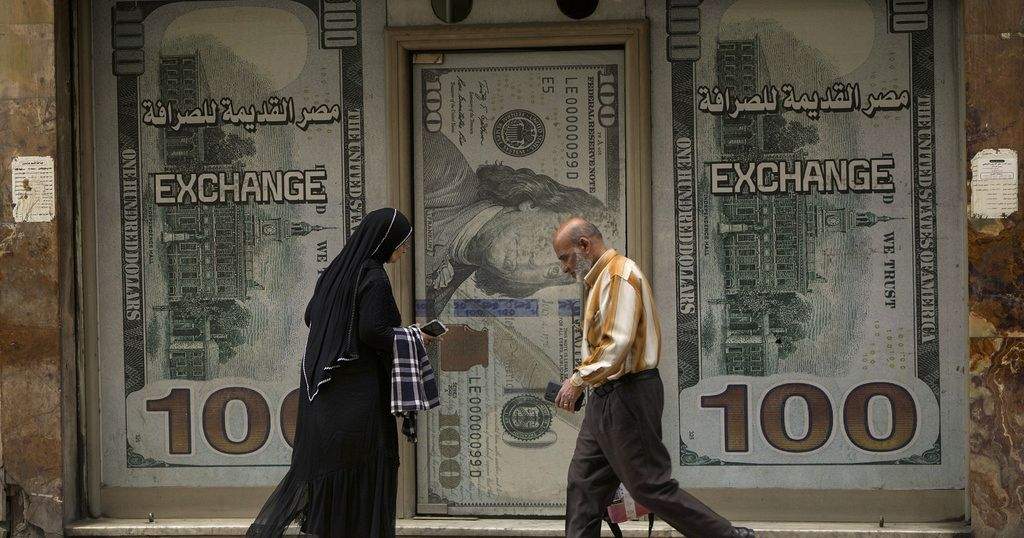Egyptian Pound Slides Against Foreign Currencies, Approaching 50 Per US Dollar
The Egyptian pound has continued its downward trend, hitting a new low of 49.16 per US dollar on Tuesday, according to the Central Bank of Egypt. This marks a significant drop from its initial public offering (IPO) in March, when it lost about 60% of its value and fell to around 30 per dollar.
The new exchange rates come just a week after the International Monetary Fund (IMF) completed its third financial review of Egypt, authorizing the government to draw down $820 million. This is part of an $8 billion bailout loan aimed at supporting Egypt’s struggling economy, which has been hampered by a shortage of foreign currency, soaring inflation, and unrest in the Red Sea caused by attacks by Yemen’s Houthi rebels.
The IMF has praised Egypt’s efforts to restore macroeconomic stability, stating that recent efforts have started to show positive results. However, inflation remains high, and the country is grappling with the consequences of rising fuel prices.
Last month, the oil ministry announced a 10% increase in fuel prices, citing the rising cost of fuel due to the Red Sea attacks and the depreciation of the Egyptian currency. The last fuel price increase took place in March, and the government has attributed the price hikes to the same factors.
The Houthis have attacked commercial ships in the Red Sea in retaliation for Israel’s war in Gaza, disrupting global trade routes and impacting Egypt’s economy. Oil, natural gas, and grain, among other goods, travel through the sea lanes that separate Africa and the Arabian Peninsula to reach the Suez Canal, which typically carries 12% of world trade.
In addition to the fuel price increases, Cairo Metro fares have also risen, with the National Tunnels Authority announcing a range of 2 to 5 Egyptian pounds. The price increases were deemed necessary to meet the IMF’s conditions for continued aid to the country.
Egypt reached an agreement with the IMF in the spring to more than double the size of its bailout, which now stands at $8 billion. The country’s economy has been struggling to recover from a series of challenges, including a shortage of foreign currency, soaring inflation, and unrest in the Red Sea.
As the Egyptian pound continues to slide against foreign currencies, the country’s citizens are facing rising costs and uncertainty. The government’s efforts to restore macroeconomic stability will be closely watched in the coming months to determine the success of its economic reforms.
